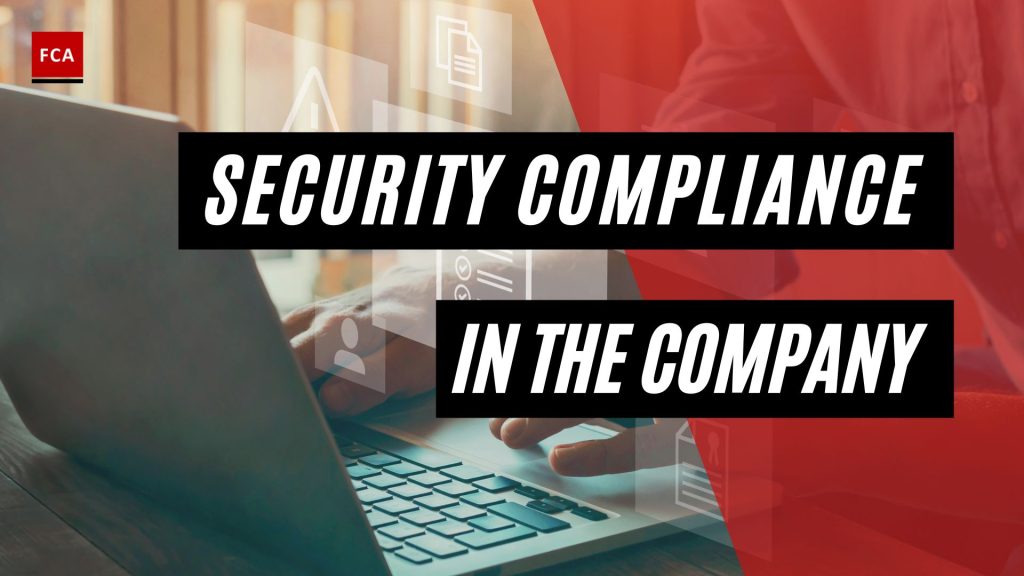Security compliance is important in a company. Any business starts with the idea its owner tries to implement to get the largest profit. However, at a certain stage of implementation of a business idea, the issues of security and business protection arise. Try to find a large business today that does not have an introduced comprehensive security policy or compliance. Protecting a business is as painstaking a day-to-day job as promoting it in the market.
There are considerations in the main priorities of security compliance, depending on the company specifics and the variety of its forms and types from a practical point of view. Our experience of protecting the business from illegal criminal prosecution in economic crimes shows that the more successful and larger a company is, the more attention it attracts from the controlling or law enforcement agencies. Along with the growth of a company, increasing the number of staff, turnover, and even network traffic, the risks increase exponentially.

Security Compliance in the Company: Development and Introduction
The development and introduction of security compliance usually start with verbal agreements and warning labels, which later are distinguished by contents, scope, level of detail, status, and subject of regulation. The most important thing for compliance development is the correct definition of priority or the core value.
We came across global policies at the level of multinational companies that were introduced and implemented regardless of a particular office’s location, depending on the form and scope of compliance. In these types of compliance, the key factor was to achieve a single algorithm of decision-making in the company and behavior in typical situations. At the next level of compliance, we highlight the instructions and security procedures developed in a particular company to regulate certain business processes. The last level determines the employee’s job descriptions or memos of actions for a specific operation.
We observe the largest number of types of security compliance in the company depending on the subject of regulation.
Security Compliance in the Company: Instructions on Staff Safety during Investigative Actions
For example, we developed and adapted instructions on staff safety for many companies during investigative actions, such as search and seizure, interrogation, and receipt of requests from law enforcement agencies and/or inspections by the controlling authorities within their powers. The main purpose of these documents is to show an employee’s or company’s algorithm of actions to achieve security and compliance with legal rights simultaneously. As the practice shows, diverting or avoiding search and seizure is almost impossible. But to go through them safely, becoming a more cohesive team is quite real.
Security compliance during investigative actions occupies a special place because it minimizes the risks that can terminate the company’s activity and become a reason for resolving the criminal liability of an employee of any rank or even a business owner.

There are enough factors to increase the significance:
- An opponent is a state body with a certain range of powers to coerce and hinder doing business
- In most cases, the protection of the violated right is carried out in court, which provides for a specific procedure and clearly defined methods of protection
- The consequences of a wrongly chosen protection strategy can be fatal for the company, negatively influence employees, and create conditions for the loss of inventory items
Strict adherence to a defined algorithm of actions is required from the staff during investigative actions and inspections. Specialists will deal with the rest
In hiring staff, a potential candidate’s reputation is checked for a vacant position. In case the minimization of the risk of hiring an employee with a negative reputation is entrusted to the HR department, appropriate compliance should be developed
The practice knows the anti-corruption, fire-prevention, anti-virus, and even anti-COVID types of compliance, which regulate a particular direction or type of activity in the company and are designed to minimize the risks identified in their names. There is a direct relationship between the introduced types of compliance and the risks that the company can manage and minimize their negative influence. Each security compliance is the result of the cooperation of different divisions of the company, the vision of security processes by the company’s owner, or the proposal of an external consultant with one goal of readiness in exchange for experience.
Final Thoughts
Compliance management includes security compliance management as a subset. It includes a bare minimum of data security requirements for organizations that store, process, or transmit data. This procedure monitors and evaluates systems, networks, and devices to ensure that they meet industry cybersecurity and compliance standards.








